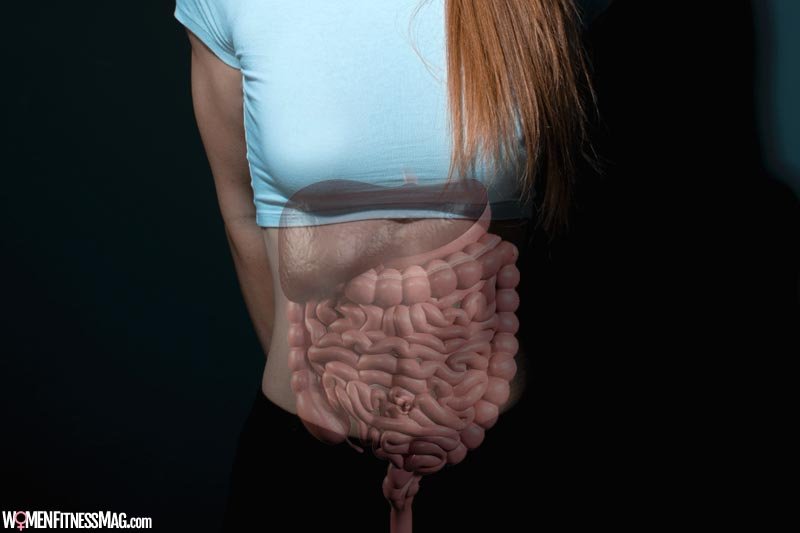5 Ways To Keep Your Digestion Healthy : Your digestive health is directly influenced by the things you consume and the way you live. Typical Western cuisine packed with additives, complex carbohydrates and saturated fats, has long been connected to numerous digestive disorders.
Furthermore, research has proven that a nutritious diet rich in whole foods and low in processed ingredients can significantly improve digestive health.
But what about those healthy foods that can still result in the wrath of an upset stomach? Unfortunately, there is no single solution to sustaining a healthy gut — while some foods are perfectly fine for some, they’re a source of digestive problems for others. However, there are certain steps you can take to reduce your risk of common digestive intolerances.
Taking actions to enhance your digestive health can improve your overall well-being by allowing your digestive system to perform more effectively. Here are five great ways to keep your digestion as healthy as possible.
-
Consider CBD supplements
CBD is a non-psychoactive compound found in hemp plants. It’s gaining popularity in the health and wellness sector with some research indicating that it can help with symptoms of digestive discomfort. The digestive tract has a high concentration of cannabinoid receptors, which, when stimulated, can change how the body regulates itself — primarily through fighting inflammation. This is why individuals with inflammatory bowel illnesses may benefit greatly from CBD.
CBD is legal in the UK, but is it safe? In 2017, the World Health Organisation decided that the compound is generally safe to use. Following this statement, many countries, including the UK, relaxed regulations around the cannabinoid. Today, it’s common to find CBD in everything from protein powder and chocolate, to skincare and flavoured drinks, though most people opt for simply ingesting a dose of oil under their tongue.
-
Add probiotics and minerals to your diet
-
Probiotics
Probiotics are friendly bacteria that may enhance digestive health by balancing bacteria in the gut, controlling harmful microorganisms. Studies have demonstrated that probiotics can help people with IBS (Irritable Bowel Syndrome) related symptoms such as bloating, gas and discomfort. Probiotics are commonly taken as capsules. However, they are also found in fermented food like sauerkraut, kimchi, and yoghurts with live cultures, plus drinks like kombucha.
-
Minerals
As for minerals, zinc is essential for the formation of digestive enzymes — which breaks down food components. Your body produces these at a slower pace if you don’t get enough of the compound, which might mean you have insufficient amounts for your digestive system to work correctly. You can ensure your body has enough zinc by increasing your diet of foods like legumes, whole grains and leafy, green vegetables — or by taking a daily supplement.
-
-
Reduce your complex carb consumption
Have you ever felt bloated, tired, or craving sweet foods after eating? Our capacity to break down carbohydrates and sugars is not always reliable, which can lead to carbohydrate intolerance. This occurs when the small intestine cannot adequately break down particular carbohydrates after digestion so that they can be used as energy for the body.
For digestive health, a good starting point is to make sure your ‘refined’ carbohydrates are reduced. This includes yoghurt, starchy vegetables, and artificial sweeteners (so not just bread and pasta, as you might think). Though everyone’s metabolism is different, many people respond favourably to reducing the amount of carbohydrate in their diets.
However, you don’t want to cut out carbs entirely — they are an essential element of a balanced diet. Instead, opt for ‘whole’ carbohydrates that contain necessary nutrients, including vitamin B and fibre, such as quinoa, bananas and beetroot. Unrefined carbohydrates such as these are non-starchy and high in fibre, making them easier to digest.
-
Watch your additive intake
Food additives such as glucose, salt, and other chemicals have been linked to increased gut inflammation. Additives are used to improve a product’s flavour, appearance, or texture, as well as lengthen its shelf life. They are frequently found in highly processed foods, such as ready-meals, diet beverages and salty snacks.
Many food additives are difficult to digest and remain in your stomach for longer than they should. This allows your gut bacteria to ferment and generate gas, which can cause bloating, cramps, and nausea.
As a result, eating a diet rich in whole foods and restricting additive-heavy processed meals may be the best way to achieve healthy digestion.
-
Take an intolerance test
In the UK, it is estimated that up to 10% of adults and children have food intolerance — the difficulty digesting certain foods. A food intolerance is not to be confused with a food allergy, which can be more severe and even life-threatening.
There are many different types of food intolerance. The most common sensitivities are from lactose (a sugar found in milk), casein (a protein found in milk), and gluten (a protein found in grains such as wheat, rye, and barley). Many people also find certain foods aggravate an existing disease, such as IBS.
If you’re concerned that you might have an allergy or intolerance, it’s best to consult with your GP. They may suggest that you keep a food diary. This way, you and your doctor can eliminate any potential culprits and formulate a list of alternative foods for your diet. Then, you may benefit from discussing your findings with a professional nutritionist who should be able to advise you further.
Related Videos about Ways To Keep Your Digestion Healthy :
5 Ways To Keep Your Digestion Healthy
ways to prevent digestive problems, how to keep stomach healthy and clean, how to improve digestive system, how to improve digestion naturally at home, foods to improve digestion, how to improve digestion fast, 8 ways of caring for the digestive system, best food for digestion problems,




